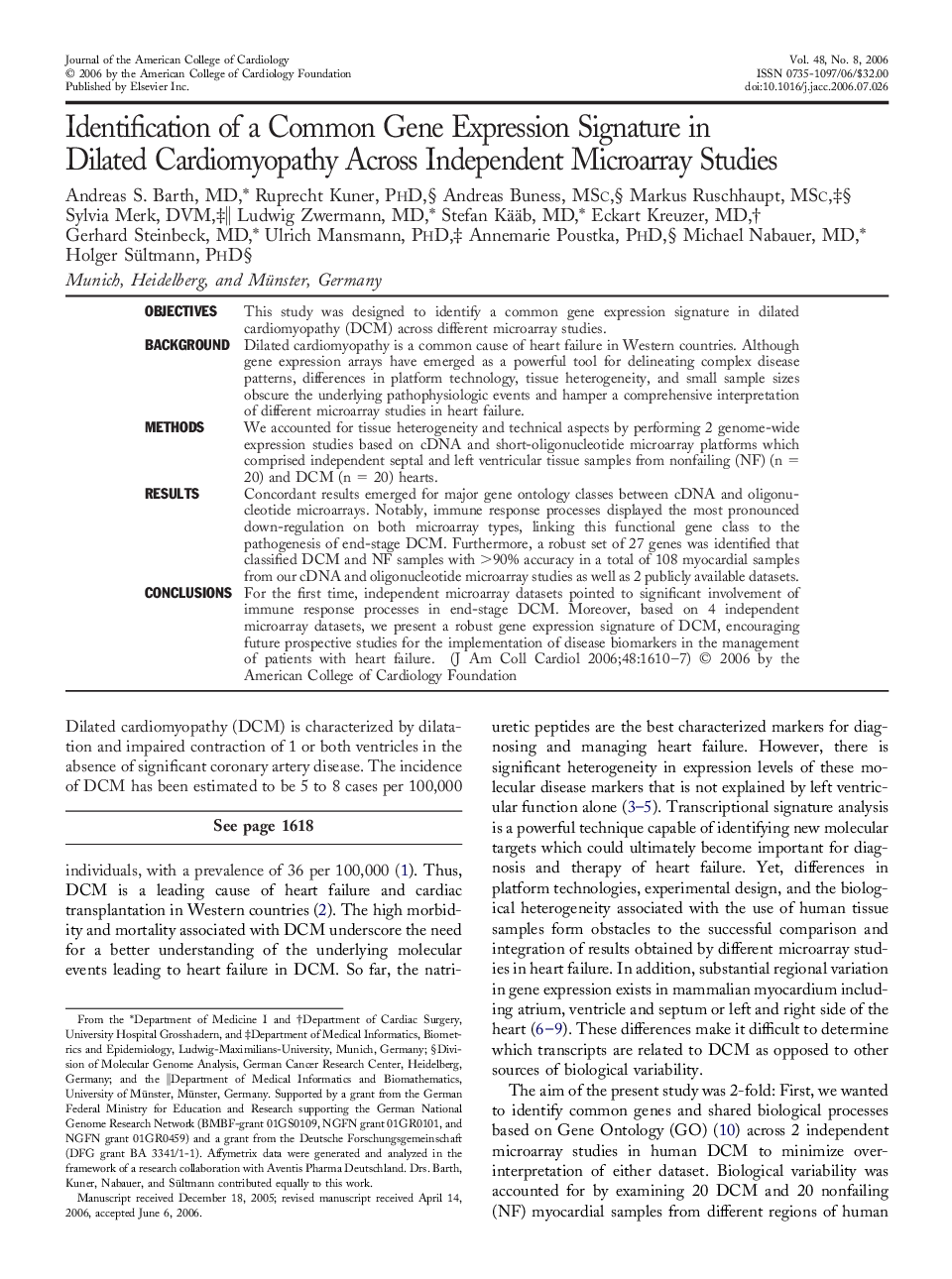| Article ID | Journal | Published Year | Pages | File Type |
|---|---|---|---|---|
| 2953942 | Journal of the American College of Cardiology | 2006 | 8 Pages |
ObjectivesThis study was designed to identify a common gene expression signature in dilated cardiomyopathy (DCM) across different microarray studies.BackgroundDilated cardiomyopathy is a common cause of heart failure in Western countries. Although gene expression arrays have emerged as a powerful tool for delineating complex disease patterns, differences in platform technology, tissue heterogeneity, and small sample sizes obscure the underlying pathophysiologic events and hamper a comprehensive interpretation of different microarray studies in heart failure.MethodsWe accounted for tissue heterogeneity and technical aspects by performing 2 genome-wide expression studies based on cDNA and short-oligonucleotide microarray platforms which comprised independent septal and left ventricular tissue samples from nonfailing (NF) (n = 20) and DCM (n = 20) hearts.ResultsConcordant results emerged for major gene ontology classes between cDNA and oligonucleotide microarrays. Notably, immune response processes displayed the most pronounced down-regulation on both microarray types, linking this functional gene class to the pathogenesis of end-stage DCM. Furthermore, a robust set of 27 genes was identified that classified DCM and NF samples with >90% accuracy in a total of 108 myocardial samples from our cDNA and oligonucleotide microarray studies as well as 2 publicly available datasets.ConclusionsFor the first time, independent microarray datasets pointed to significant involvement of immune response processes in end-stage DCM. Moreover, based on 4 independent microarray datasets, we present a robust gene expression signature of DCM, encouraging future prospective studies for the implementation of disease biomarkers in the management of patients with heart failure.
